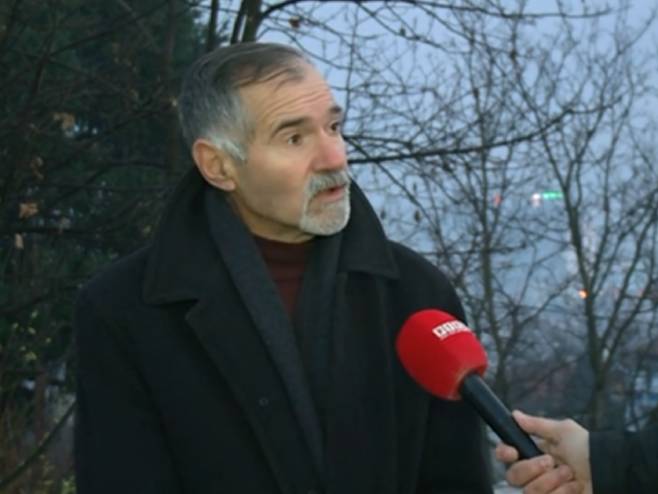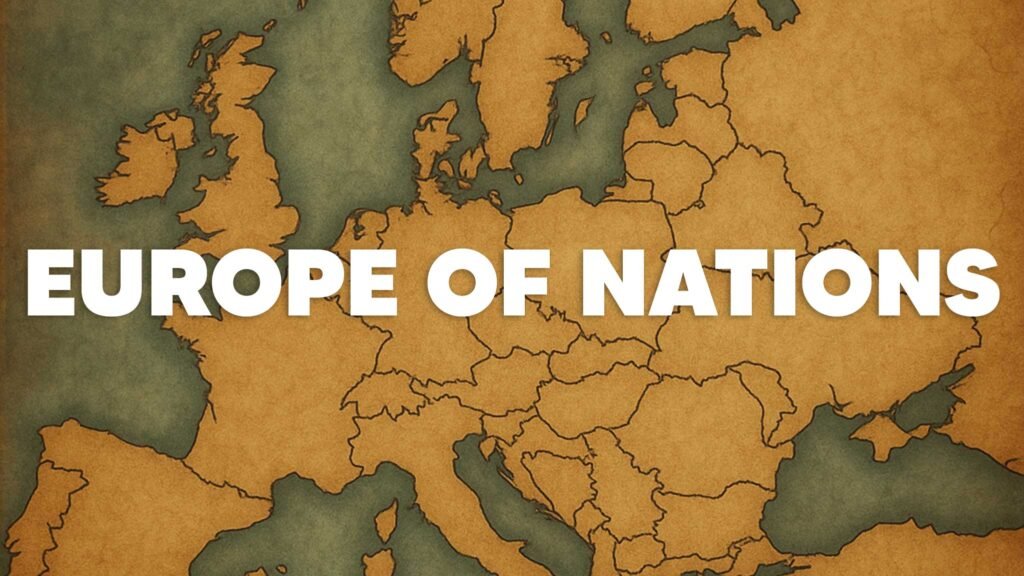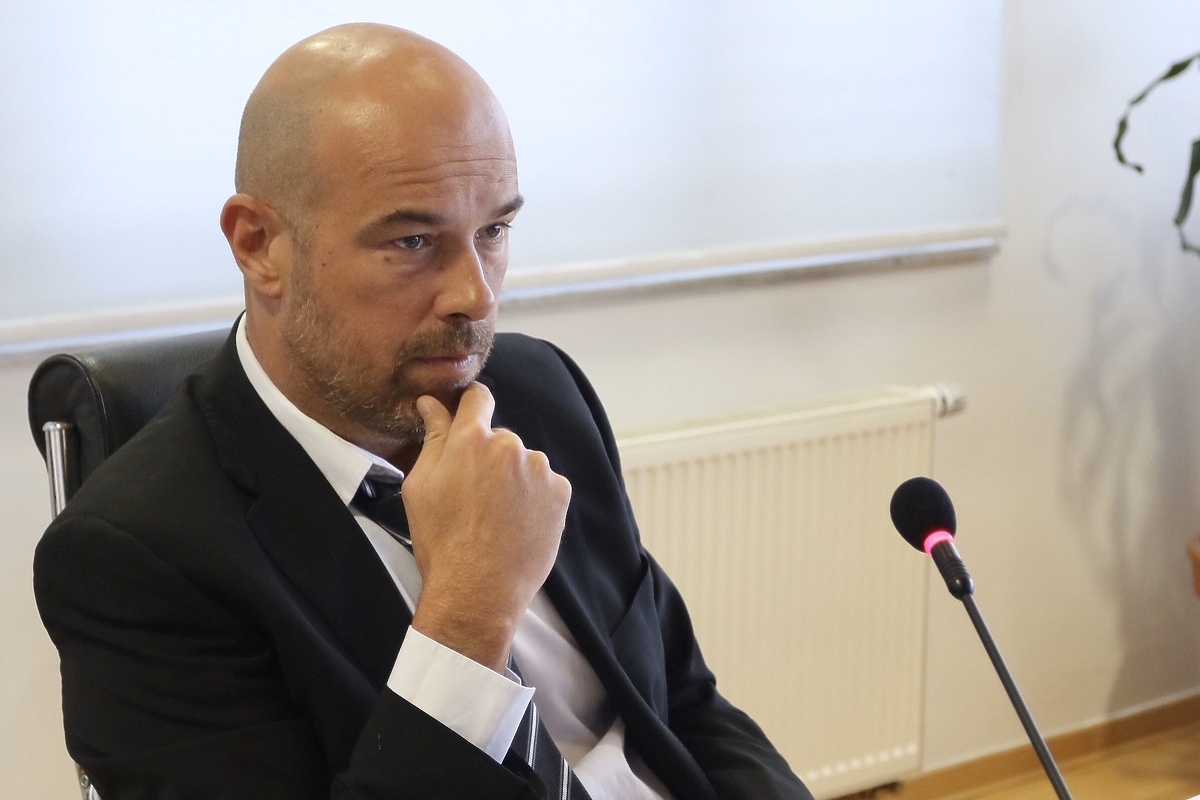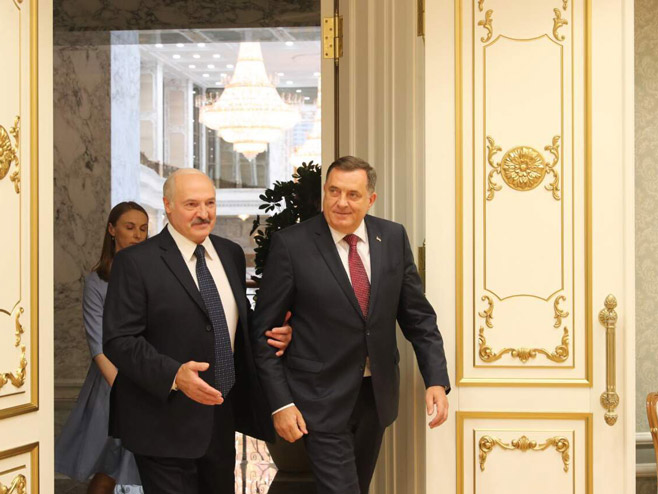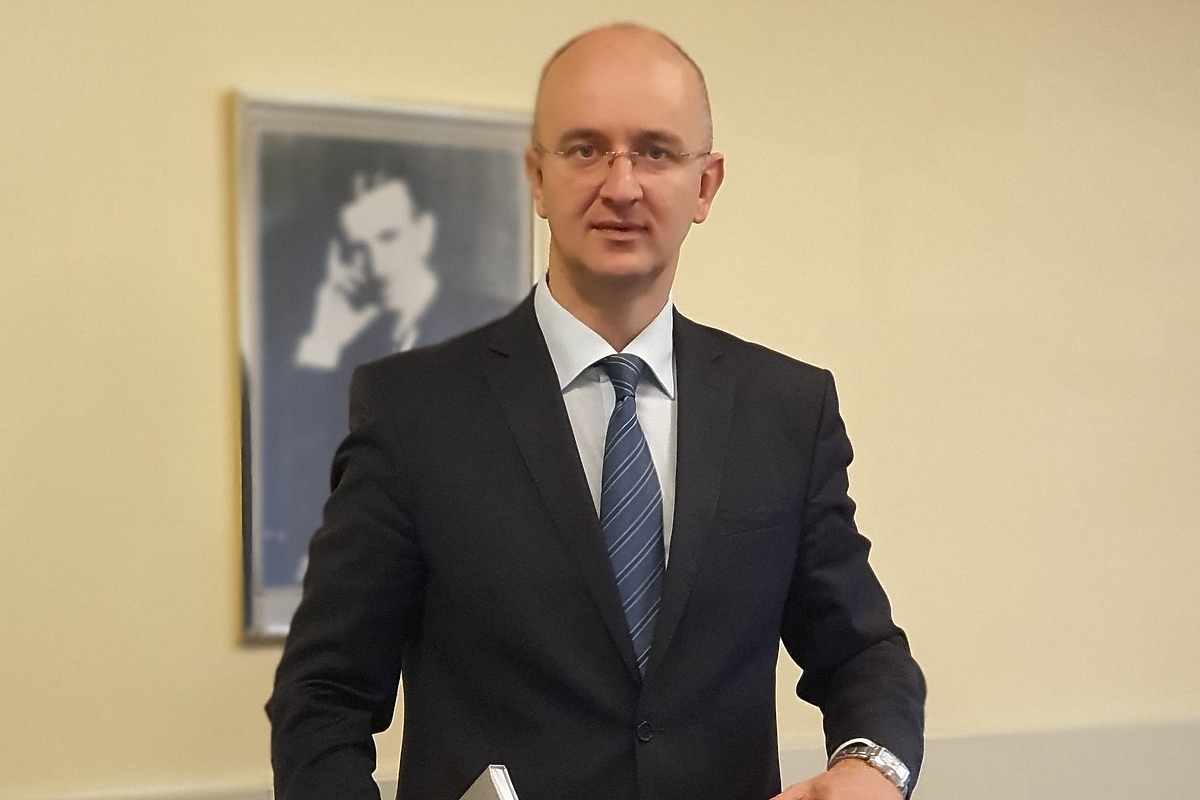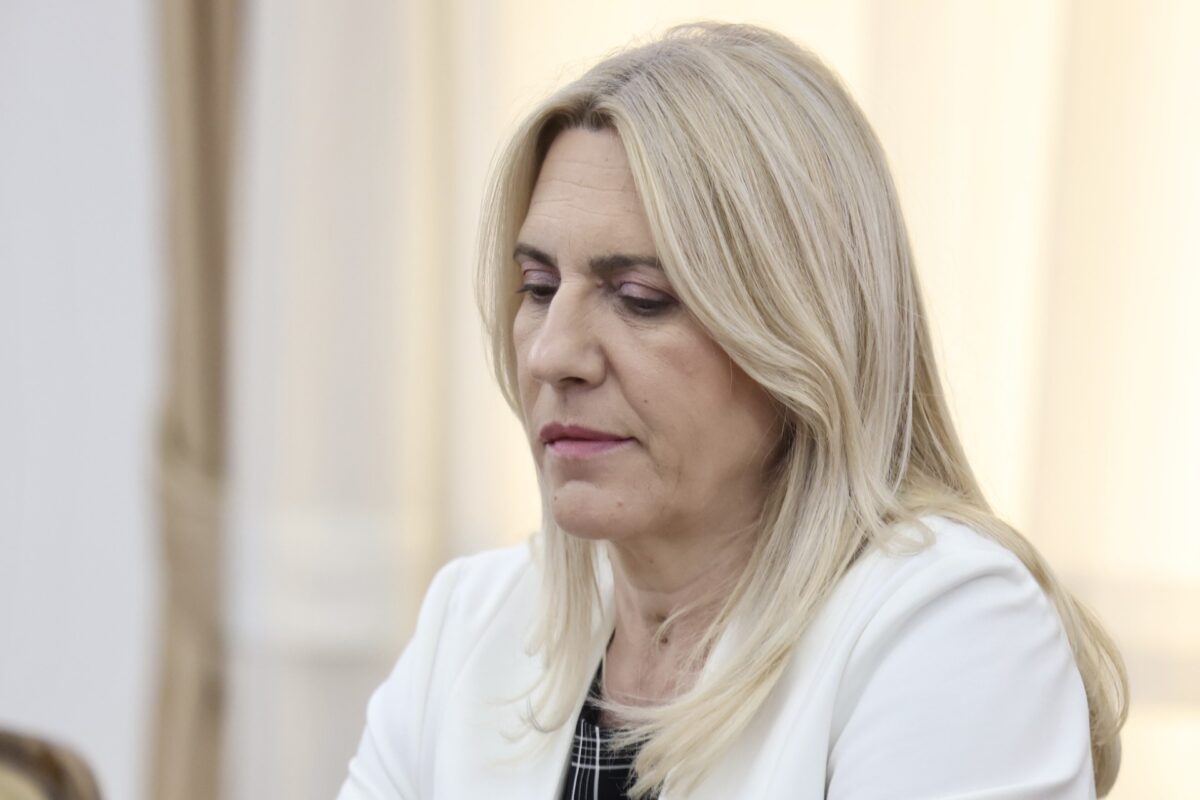The decisions of the High Representative in Bosnia and Herzegovina have continued to push for the centralization of power within the federal institutions of BiH, through the imposition of various laws and decisions, including attempts to dismiss democratically elected domestic officials who oppose this trend—such as the conviction of Republika Srpska President Milorad Dodik—aimed at denying the sovereignty and right to self-determination of Srpska, according to French researcher, lecturer, and geopolitics expert Pierre-Emmanuel Thomann.
The full article by the French geopolitics expert Pierre-Emmanuel Thomann, published on his website Eurocontinent, is conveyed by SRNA in its entirety:
In February 2025, the Court of BiH sentenced Milorad Dodik, President of Republika Srpska (the Serb Republic of BiH), to one year in prison and banned him from holding public office for six years. This sentence followed amendments to the criminal code imposed by the High Representative in BiH, Christian Schmidt, a German national, in July 2023, adding the criminal offense of failing to respect the decisions of the High Representative.
After Milorad Dodik rejected the authority of the High Representative for BiH—whose appointment by the Peace Implementation Council was not confirmed by the UN Security Council, nor were the appointments of his predecessors—this decision allowed the Prosecutor’s Office to indict President Dodik.
President Milorad Dodik accuses the central authorities in Sarajevo and the High Representative of violating the Dayton Agreement, which established a federal structure for BiH intended to balance power between the central government and its entities.
It is worth recalling that since the Dayton Peace Agreement of 1995, which ended the civil war, BiH has consisted of the “Croat-Muslim Federation” (with Sarajevo as its capital) and “Republika Srpska” (with Banjaluka as its capital), each with its own army, parliament, government, and constitution. The Dayton Agreement guaranteed the entities, including Republika Srpska, legal provisions for broad autonomy in policing, education, justice, and economics.
The Office of the High Representative (OHR) in BiH is an institution created by the same Dayton Agreement, tasked with facilitating its implementation. Christian Schmidt was appointed by the PIC, and therefore not elected, due to the absence of a UN Security Council decision. The PIC Steering Board, its executive body, operates under the leadership of the High Representative and includes its member countries.
Its members are representatives from the United States, Canada, the United Kingdom, France, Germany, Italy, Japan, Russia, the EU Presidency, the European Commission, and the Organization of Islamic Cooperation (represented by Turkey).
This reflects the different geopolitical interests behind the administration of BiH as a protectorate. President Milorad Dodik has rejected this punitive sentence, emphasizing that he is not seeking secession but has called for Serb unity around their institutions—parliament, government, and law enforcement—which he views as pillars of stability and legitimacy for the entity.
Milorad Dodik aims to promote dialogue with Bosnian Croats to counter the Muslim-led capital Sarajevo, which is pursuing a project of expanding political Islam in the country.
Behind these political and legal disputes lie geopolitical issues—power struggles among great powers and the desire of Euro-Atlantic actors to deny Republika Srpska and its citizens, led by Milorad Dodik, sovereignty, and to keep the Serb world geopolitically weak and fragmented.
The goal of NATO and the European Union, led by NATO, is to complete the geopolitical fragmentation of the Balkans, initiated by the destruction of Yugoslavia, with the eventual accession of BiH and the southern Serb province of Kosovo to NATO and the EU.
The aim is to prevent any rapprochement among Serb world entities—Serbia, Republika Srpska, and Serb Kosovo—and to diminish political and historical ties between the Serbs and the Russians.
The geopolitical situation in the Balkans today is defined by complex configurations based on a triple encirclement strategy aligned with the geopolitical priorities of Washington and NATO.
As part of Washington’s grand strategy to encircle Eurasia and turn Europe into a “Rimland” against Russia, a geopolitical encirclement strategy is being implemented on the European level in the Western Balkans and, ultimately, in the region surrounding Serbia by the Washington/Berlin/NATO/EU axis.
Maintaining a unified BiH also aims to prevent any potential rapprochement between Republika Srpska and Serbia and, in synergy with the independence of Kosovo, to block the possible unification of the Serb nation.
This German-American strategy of encircling Serbia also aims to halt Russia’s return to the Balkans. Once the Washington/Berlin/NATO/EU continuum finalizes its policy of “Balkanizing” Yugoslavia—after separating Montenegro from Serbia to cut off its access to the sea—the final goal is the absorption of the various Western Balkan states into the EU and NATO.
However, the feasibility of this Euro-Atlantic plan depends on the outcome of the war in Ukraine, which will determine the evolution of many unresolved geopolitical disputes in Europe.
Donald Trump’s election and the ongoing changes and uncertainties in U.S. foreign policy have made this plan even less likely. Russia’s military intervention in Ukraine has effectively ended Euro-Atlantic expansion into Ukraine, whose territory is irreversibly shrinking in favor of Russia.
This intervention has also accelerated the shift in global order in Russia’s favor toward a multipolar configuration, including in Europe and particularly in the Balkans, fundamentally challenging the geopolitical order established by NATO interventions in former Yugoslavia.
It is therefore certain that the project of absorbing the Western Balkans into the Euro-Atlantic space will not only become more complicated, but—as we are already witnessing—that this space will once again become a primary theater of conflict between Russia and the Washington/NATO/EU axis. To avoid the likely scenario of vertical and horizontal conflict escalation—potentially spreading from Ukraine to the Balkans—it would be wise to consider a systemic alternative to prevent such a dangerous surge, which is harmful to all of Europe.
The exclusive Euro-Atlantic geopolitical order is, in fact, outdated for promoting a stable continental order on the European and Eurasian levels.
With the conflict in Ukraine, it is clear that there will be no return to the previous state of affairs, as the global geopolitical shift toward a multipolar world has definitively accelerated.
NATO and EU enlargement is now impossible near Russia’s borders without risking military escalation, and it is increasingly uncertain even in the Balkans. The EU and NATO will no longer be able to structure the spatial and geopolitical order of the European and Eurasian continents in a unilateral and exclusive manner.
To stabilize Europe, there is no alternative but to abandon the doctrine of NATO and EU expansion and promote a more balanced and inclusive security system for all nations on the European continent, including Russia, Serbia, and the various entities of the Serb world.
Ideally, negotiations should be held for a new European geopolitical architecture, one that includes not only Russia but also the Balkan states—especially Serbia—based on a model of a Europe of sovereign nations and on the principle of geopolitical balance, as an alternative to a Europe integrated into the Euro-Atlantic space (NATO-EU) that excludes Russia.
Ultimately, this is also a matter of reviving the classical negotiations on European balance that brought about major successive spatial orders in Europe—from the Peace of Westphalia (1648) to the Moscow Treaty (1990), including the Congress of Vienna (1814–1815)—which were uncertain and temporary, but still preferable to a growing military escalation.
France would benefit from returning to its role as a balancing power, a legacy of General de Gaulle’s vision. In this context, it would be in its interest to draw closer not only to Russia, but also to the Serb world, within the framework of a new European geopolitical architecture—as an alternative to the exclusive and crisis-stricken Euro-Atlantic system, which inflames conflict and relegates France to the Euro-Atlantic periphery.
In this configuration, the stabilization of the Balkans logically requires rapprochement between the various fragmented entities of the Serb world—Serbia, Republika Srpska, and the Serbs of Kosovo—entities born out of the old unipolar order following the destruction of Yugoslavia, based on the principle of self-determination.
In this context, the conviction of President Milorad Dodik, who resists the centralization of power in BiH, is a decision that not only deepens geopolitical rifts in BiH but also reflects Euro-Atlantic geopolitical goals rooted in an outdated configuration.
President Milorad Dodik is not alone in his stance; he enjoys growing political support in neighboring states—Serbia and Hungary—as well as among political parties in EU member states that defend the model of a Europe of nations.
Source: RTRS

